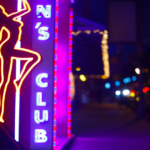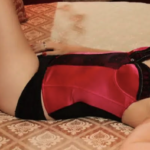The Rules for Opening and Operating a Sex on Premises Venue in NSW

From gay saunas to swingers events, sex clubs (or sex-on-premises venues) provide a unique space for fantasies to be explored.
Following on from our articles on opening a brothel and a strip club, here’s what you need to know about setting up your own sex club in NSW.
What Is A Sex Club?
Technically the term ‘sex club’ can encompass any social arrangement where people meet to have sex, from a specialised bondage event to a suburban orgy.
However, this article will focus on opening and running a ‘sex-on-premises venue’ where participants pay a fee to enter a premises.
The City of Sydney Adult Entertainment and Sex Industry Premises Development Control Plan 2006 defines a ‘sex-on-premises venue’ as:
Premises that gain income from entrance and/or membership fees paid for the use of the premises for sex between the clients but are not premises where sex services take place, or are arranged in exchange for payment. Includes: swingers clubs and sauna clubs that accommodate sexual encounters.
Specialised legal obligations generally won’t apply to ‘amateur’ arrangements where no money is exchanged, but can include one-off events where sex is expected to occur at the venue.
Getting Approval to Operate
Some local councils in NSW have specific planning restrictions which apply to sex clubs. This can include:
- Only allowing sex clubs to operate in industrial areas;
- Requiring a specific development application be made and approved before a sex club can operate; and
- Requiring sex clubs operating in an area to follow certain industry rules.
Under Sydney’s development control plan, sex-on-premise venues are treated the same as brothels and strip clubs in that they:
- Must not be located in areas zoned residential, within buildings containing a residential use, or immediately adjacent to or directly opposite (to any elevation) land developed for residential purposes.
- Must be separated from land developed for residential purposes by at least one other non-residential land use.
- Must not be located adjacent to or directly opposite (to any elevation) day care or child-minding centres, primary or secondary schools, churches, parks, playgrounds, or any other place regularly frequented by children.
- Must not be located within a radius of 75 metres from an existing, approved adult entertainment or sex industry premises.
Health, Safety and Consent
All businesses must abide by occupational health and safety and general public health laws. However, running a sex clubs carries a unique set of risks and obligations.
Venues are obligated to be kept clean and hygienic, with condoms, dental dams and lubricant made available on-site. There should be signage on the premises promoting safe sex as well as respect for affirmative consent.
Consent under NSW law means ‘freely and voluntarily’ agreeing to a sexual act. It’s important to note that consent:
- Will not exist if a person does not say or do anything to communicate consent.
- Can be withdrawn at any time.
- Is not established merely because a person does not offer physical or verbal resistance,
- Is contextual, so that consent to one form of sexual activity is not taken as amounting to consent to another.
Consent will also not exist if a person:
- Is unconscious or asleep.
- Consents because of force, fear of force or harm; coercion, blackmail or intimidation or because they have been unlawfully detained.
- Was overborne by the abuse of a relationship of authority, trust or dependence.
- Is so affected by alcohol or another drug so as to be incapable of consenting,
- Consents because of a mistaken belief about the nature or purpose of the sexual activity, about the identity of the other person or that they are married, or because of fraudulent misrepresentation.
Operators of sex clubs owe obligations to entrants into their premises including to take complaints regarding sexual misconduct or offending seriously.
Gay saunas in Sydney have also signed up to a code of practice outlining extensive requirements for:
- Condom and lube distribution and access,
- Lighting at the venues,
- Drug and alcohol awareness and the provision of safe injecting disposal equipment,
- Sexual health information and education resources,
- Staff training and vaccinations, and
- Cleaning.






